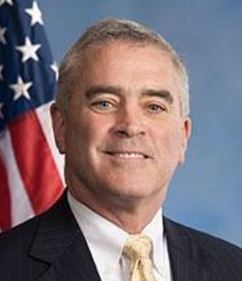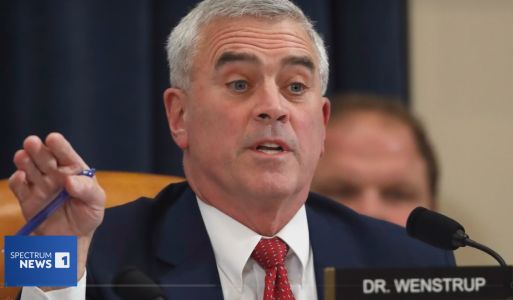02/07/2025
RESPONSES/COMMENTS (HEALTHCARE LEGISLATION)
From: Daniel Jones, DPM
Congress reversing Medicare reversing the physician pay cuts for 2025 seems more like a slap in the face and doesn’t even come close to addressing the real problem. For years and years, Medicare has failed to increase physician payments anywhere close to the rate of inflation. A Medicare bunion reimburses $500-600 AND has a 90-day global period. It’s not sustainable. All the risk of surgery, all the training and investment of time, and 3-4 no charge follow-up visits, assuming nothing goes wrong. Yes, the patients are thankful, but a “thank you” doesn’t pay the bills.
We do more and more and get paid less than less. It’s absolutely ridiculous. I see that the AMA is on board with this absurdity. Physician payment increases should be put back on track to where they were 20 years ago, with adjustment for yearly inflation. What should the reversal actually consist of? 30% 50%? 80%? Don’t get me started on MIPS deductions and tracking.
Physicians are routinely undervalued, under-appreciated, and underpaid. But that’s “OK” because doctors are “rich” and “privileged” and “make enough money already”. If you want to know why we have low applicants for podiatry school, it’s because physicians are not valued in the United States. And with Medicare leading the way, it’s only going to get worse.
Daniel Jones, DPM, Casper, WY
02/06/2025
HEALTHCARE LEGISLATION
Bill Introduced to Reverse 2.83% Physician Medicare Cuts
A bipartisan coalition of 10 House lawmakers introduced legislation on Jan. 31 aimed at reversing a 2.83% Medicare physician payment reduction and implementing a 2% increase to help stabilize physician practices and protect patient access to care. If enacted, the Medicare Patient Access and Practice Stabilization Act would retroactively nullify the 2.83% cut that took effect on Jan. 1, with changes set to take effect on April 1. A similar proposal garnered bipartisan, bicameral backing in December, but Congress ultimately failed to act on it before the end of the session.
The American Medical Association has strongly endorsed the measure, pledging to collaborate with lawmakers to incorporate it into forthcoming legislation to extend federal government funding beyond the March 14 deadline.
Source: Patsy Newitt, Becker's ASC [2/3/25]
11/28/2024
RESPONSES/COMMENT (HEALTHCARE LEGISLATION)
From: Neil H Hecht, DPM
All 50 state medical societies – and DC— as well as 77 national medical societies signed the letter to block the Medicare cuts scheduled for 2025. So my question immediately was which 57 or 58 US Senators DIDN’T sign the letter? Those names should be published and we need to lobby them very hard! Private practice is obviously disappearing rapidly and shows NO signs of recovery.
Neil H Hecht, DPM, Tarzana, CA
Editor's note: The entire letter along with the 41 signers can be read here. If your senator's name is not on the list, please contact them ASAP.
11/27/2024
HEALTHCARE LEGISLATION
41 Senators Sign Letter to Stop the Medicare Cut
In a sign of legislative momentum, 41 senators are supporting efforts to prevent a pending 2.8 percent cut in Medicare physician payments that will go into effect Jan. 1. The bipartisan letter led by Sens. John Boozman, R-Ark., and Peter Welch, D-Vt., to Senate leaders says the cuts would interfere with the ability of physicians to provide high-quality care. “These continued payment cuts undermine the ability of independent clinical practices – especially in rural and underserved areas – to care for their communities,” the letter said.
The Senate letter follows one from the American Medical Association (AMA) and 127 other state medical associations and national medical societies asking Congress to use these last few congressional days to prevent the scheduled cuts. The letter to congressional leaders also urges Congress to provide a positive payment update for 2025. All 50 state medical societies – and DC— as well as 77 national medical societies signed.
Source: AMA
11/05/2024
HEALTHCARE LEGISLATION
Bipartisan Legislation Aims to Stop Medicare Cuts & Boost Physician Pay in 2025
Physicians and other healthcare practitioners may get a pay boost in 2025 through a bipartisan bill recently introduced in Congress. The proposed bill seeks to block planned Medicare pay cuts next year and would provide the first inflationary update to physician pay in years.
The Medicare Patient Access and Practice Stabilization Act would counteract the 2.8% cut to the conversion factor proposed by the Centers for Medicare and Medicaid Services (CMS) in the draft CY2025 Physician Fee Schedule. A stop-gap pay fix is usually enacted by Congress at the end of the year.
Source: Emma Beavins, Fierce Healthcare [10/30/24]
09/23/2024
PODIATRISTS AND HEALTHCARE LEGISLATION
OH Podiatrist Intends to Keep Pushing Bipartisan Health Bills
Rep. Brad Wenstrup, DPM isn’t planning to coast through his final months on Capitol Hill. “For me, there’s no putting it off till the next term,” the Ohio Republican said this month as he prepares to exit Congress alongside 44 other House members at the end of the year.
 |
Dr. Brad Wenstrup |
Why it matters: Wenstrup — a podiatrist and former combat surgeon — has become a heavyweight on health issues during his six terms in the House. He co-chairs the chamber’s GOP Doctors Caucus and leads the Select Subcommittee on the Coronavirus Pandemic. One such bill is the Safe Step Act, which would cut out unnecessary delays in care. Another is the Treat and Reduce Obesity Act.
Source: McKenzie Beard, Washington Post (photo credit: Ricky Carioti) [9/20/24]
05/09/2024
PODIATRISTS AND HEALTHCARE LEGISLATION
OH Podiatrist Co-Sponsors Bipartisan "Hospital At Home" Extender Legislation
Representatives Brad Wenstrup, DPM (R-OH) and Earl Blumenauer (D-OR) introduced the bipartisan Hospital Inpatient Services Modernization Act. This important legislation includes a 5-year extension of the Acute Hospital Care at Home program to allow participating providers to continue furnishing services that enhance access to care. This bill will allow for the expanded delivery of hospital-level care for Medicare beneficiaries in the comfort of their own home.
 |
Dr. Brad Wenstrup |
This bill incorporates feedback received from providers and health systems participating in the Acute Hospital Care at Home (AHCAH) program or considering doing so under an extension of the waiver. In addition to a 5-year extension for Hospital Care at Home waivers, this legislation also includes improvements to data collection required under the program to better inform Congress on how to make this program permanent in the future. “As a physician and Co-Chair of the GOP Doctors Caucus, I have seen firsthand how important it is for patients to have access to the method of care that best fits their needs," said Dr. Wenstrup.
08/01/2023
PODIATRISTS AND HEALTHCARE LEGISLATION
OH Podiatrist is Sponsor of Bipartisan Value-Based Care Bill
Healthcare organizations are lining up to support federal legislation that could create new incentives for physicians and healthcare organizations to adopt value-based care. Federal lawmakers introduced the Value in Health Care Act of 2023 and a number of physician and medical groups quickly announced their endorsements.
 |
Dr. Brad Wenstrup |
The legislation “would make commonsense changes to Medicare’s Alternative Payment Models (APMs) program to incentivize greater participation in value-based health programs.” It would help increase participation in accountable care organizations (ACOs) that are designed to improve quality of care and health outcomes for seniors, while lower costs, said an announcement from Representative Suzan DelBene (D-OR), a co-sponsor of the bill. Additional sponsors are Representatives Darin LaHood (R- IL), Kim Schrier, MD, (D-WA), Brad Wenstrup, DPM (R- OH), Earl Blumenauer (D-OR), and Larry Bucshon, MD (R- IN).
Source: Richard Payerchin, AJMC [7/28/23]
02/14/2023
HEALTHCARE LEGISLATION
Lawmakers Reintroduce Bill to Increase Access to ASCs
Four lawmakers have reintroduced legislation to increase Medicare beneficiaries' access to affordable outpatient surgical care. Sens. Bill Cassidy, MD, and Richard Blumenthal along with Reps. Brad Wenstrup, DPM, and John Larson are working to pass the Outpatient Surgery Quality and Access Act.
The goal of the bill is to close the reimbursement gap between hospital outpatient departments and ASCs, end copay penalties for Medicare beneficiaries, address barriers to affordable and quality care, and increase transparency about CMS' procedure coverage at ASCs, according to a news release from Dr. Cassidy's office.
Source: Riz Hattan, Becker's ASC Review [2/10/23]
06/07/2022
RESPONSES/COMMENTS (HEALTHCARE LEGISLATION)
From: Allen Jacobs, DPM
The “Securing a Strong Retirement Act” (H.R. 2954) has the potential to assist our young practitioners in building a secure financial future while struggling with what has become in many circumstances overwhelming student debt. The provisions of this bill could serve to encourage potential students who otherwise would not seek a career in podiatry, fearful of the acquired educational debt, to consider entering the profession of podiatric medicine. PM News readers are encouraged to call or otherwise contact their senators to express support for this legislation.
Allen Jacobs, DPM, St. Louis, MO
06/07/2022
HEALTHCARE LEGISLATION
Bill Enables 401(k) Match for Doctors Paying Off Student Loans
Under provisions in the “Securing a Strong Retirement Act” (H.R. 2954), graduates who cannot afford to contribute to their employer-sponsored retirement plan would no longer be forced to forego the important employer match for retirement contributions. The bill, passed by an overwhelming 414–5 margin in the House, has moved to the Senate.
The “Securing a Strong Retirement Act” permits retirement plans such as employer-sponsored 401(k) plans to make matching contributions to workers as if their student-loan payments were retirement-plan contributions. Qualified student-loan payments are broadly defined under the legislation as any indebtedness incurred by the employee solely to pay qualified higher education expenses of the employee.
Source: AMA via Dr. Allen Jacobs
05/24/2022
PODIATRISTS AND HEALTHCARE LEGISLATION
OH Podiatrist, Lawmakers Introduce Prevent BLEEDing Act
Reps. Brad Wenstrup, DPM (R-OH) and Tom O’Halleran (D-AZ) and U.S. Sens. Bob Menendez (D-NJ) and John Boozman (R-AR) have introduced bipartisan legislation to expand access and training to life-saving bleeding control kits in communities and public gathering places.
 |
Dr. Brad Wenstrup |
“As a doctor and combat surgeon who served in Iraq, I know that having the proper bleeding control tools and training is critical when it comes to saving lives,” said Congressman Dr. Brad Wenstrup. "Uncontrolled bleeding is the number one cause of preventable death from trauma. In the immediate aftermath of an emergency, when seconds matter, our bill gives Americans access and training to life-saving bleed control kits in public gathering places.”
Source: The Highland County Press [5/22/22]
12/13/2021
HEALTHCARE LEGISLATION
Legislation Stopping Medicare Payment Cuts Clears Congress
In a 59 to 35 vote on Thursday, the Senate passed legislation that will prevent statutory Medicare payment cuts from taking effect next year. The bill cleared the House earlier this week. With approval from Congress, President Biden can now sign the bill into law.
The law will extend a moratorium on the 2 percent Medicare sequestration until April 2022, then reduce the amount taken from payments to 1 percent for another three months. The law also prevents the statutory Pay-As-You-Go cuts to Medicare, which total 4 percent of Medicare payments, and some of the rate cuts finalized in the Medicare Physician Fee Schedule final rule from November.
Source: Jacqueline LaPointe, Revcycle Intelligence [12/10/21]
10/29/2020
HEALTHCARE LEGISLATION
Patients Can Read Your Clinical Notes Starting November 2
Starting November 2, all patients in the United States will have immediate access to clinical notes and thus will be able to read their doctors’ writings, as well as test results and reports from pathology and imaging.The 21st Century Cures Act mandates that patients have fast, electronic access to the following types of notes: consultations, discharge summaries, history, physical examination findings, imaging narratives, laboratory and pathology report narratives, and procedure and progress notes.
An outstanding concern about open notes is that it will cause more work for healthcare professionals. Traditionally, doctors have written notes using medical lexicon, including a lot of abbreviations and jargon for efficiency’s sake. Now that patients will read the notes, will clinicians have to spell out things in lay terms, alter their writing so as not to offend, and generally do more work? William Harvey, MD, chief medical information officer, Tufts Medical Center, Boston, acknowledged that that may be the case.
Source: Nick Mulcahy, MDedge [10/22/20] via Dr. Richard Rettig
10/23/2020
HEALTHCARE LEGISLATION
OH Podiatrist Urges Leaders to Protect Patient Access and Stop Medicare Cuts
Representatives Ami Bera, MD (CA-7), Larry Bucshon, MD (IN-8), Brendan Boyle (PA-2), George Holding (NC-2), Raul Ruiz, MD (CA-36), Roger Marshall, MD (KS-1), Abby Finkenauer (IA-1), Brad Wenstrup, DPM (OH-2); along with 221 colleagues, have sent a letter to Speaker of the House Nancy Pelosi and House Minority Leader Kevin McCarthy urging them to protect patients by stopping Medicare cuts impacting physicians across the country. The bipartisan letter outlines the impact these cuts will have on the healthcare system and calls for Congress to act to stop them from taking effect on January 1, 2021.
 |
Dr. Brad Wenstrup |
Earlier this year, the Centers for Medicare and Medicaid Services proposed a new Medicare Physician Fee Schedule set to take effect in the new year, which will cut Medicare payments for surgical care by up to nine percent for some specialties. This rule is especially reckless given the pandemic and will force surgeons around the country to make tough decisions. In some cases, surgeons may have to decide between keeping their practice open and cutting costs like new staff, Medicare patient intake, and new surgical technologies.
Source: Surgical Care Coalition [10/20/20]
06/22/2020
hEALTHCARE LEGISLATION
Senators Call for Permanent Changes to Expand Telehealth Access Post-Pandemic
Congress took steps to quickly expand access to telehealth during the COVID-19 pandemic. Now 30 senators are calling for those changes to become permanent. Senator Brian Schatz, (D-HI), wrote a letter urging Senate majority leader Mitch McConnell, (R-KY), and minority leader Charles Schumer, (D-NY), to support expanding access to telehealth services on a permanent basis so that it remains an option for Medicare beneficiaries both now and after the pandemic.
Virtual care has proven to be a lifeline for patients during the COVID-19 pandemic and the use of telehealth services has skyrocketed in the past three months. The number of Medicare beneficiaries using telehealth services during the pandemic increased 11,718% in just a month-and-a-half, according to Senator Schatz.
Source: Heather Landi, Fierce Healthcare [6/15/20]
05/20/2019
hEALTHCARE LEGISLATION
Florida Legislature Passes New Telehealth Law
On April 29, 2019, the Florida State Legislature passed HB 23, a law providing additional guidelines on the use of telehealth in the Sunshine State. The bill is now on its way to Governor DeSantis’ desk where he is expected to sign it into law. The law cements the validity of telehealth services in Florida, establishes new telehealth practice standards, creates a registration process for out-of-state healthcare professionals to use telehealth to deliver healthcare services to Florida patients, and introduces less-than-ideal commercial reimbursement provisions.
Telehealth Provider is broadly defined as an individual who provides a healthcare service using telehealth, which includes, but is not limited to, a licensed physician, podiatrist, optometrist, nurse, nurse practitioner, pharmacist, dentist, and chiropractor, among others. While the bill is a great step forward for providers of telehealth services on several fronts, it does not actually require health plans to cover services delivered via telehealth.
Source: JDSUPRA [5/13/19]
05/14/2019
hEALTHCARE LEGISLATION
States Push Expanded Scope of Practice for Physician Extenders
More states are introducing legislation that would allow physician assistants (PAs) and advanced practice registered nurses (APRNs) to practice independently of physicians. Expanded scope of practice for PAs and other advanced practice practitioners has been a point of contention in U.S. healthcare for decades.
22 states and the District of Columbia allow nurse practitioners to function in a "full practice environment," which includes evaluating patients, ordering and interpreting diagnostic tests, managing treatments, and prescribing medications. More states are pushing for legislation to expand the scope of practice for advanced practice practitioners. This has been contentious, with physician groups insisting on continued oversight.
Source: Debra Gordon, Univadis [5/7/19] via Dr. Allen Jacobs
12/04/2017
HEALTHCARE LEGISLATION
Senate Tax Cut Bill Repeals ACA Mandate
By a vote of 51-49, the Senate passed a tax overhaul bill early Saturday morning that included a repeal of the Affordable Care Act's (ACA) individual mandate, which requires people to buy a health insurance policy or pay a penalty.
The vote was mostly along party lines; only Sen. Bob Corker (R-TN) crossed over to vote with the Democrats against the measure. The Senate bill must now be reconciled with a tax bill passed by the House on Nov. 16th; that bill does not include the mandate repeal.
Source: Joyce Frieden, Medpage Today [12/2/17]
11/16/2017
HEALTHCARE LEGISLATION
Senate Republicans Likely to Repeal ACA Mandate as Part of Tax Bill
Senate Republicans have a good chance of passing a repeal of the Affordable Care Act's individual mandate as part of their tax cut legislation, even though healthcare industry groups are lobbying hard against it, political observers say.
That's because the three GOP senators who scuttled the last repeal-and-replace effort — Maine's Susan Collins, Alaska's Lisa Murkowski, and Arizona's John McCain — are unlikely to balk at erasing the ACA's least popular feature, especially when the bill would not cut federal Medicaid funding to their states.
Source: Harris Meyer, Modern Healthcare [11/15/17]
10/19/2017
INTERNATIONAL PODIATRY AND HEALTHCARE LEGISLATION
Canadian Bill Could End High Heel Workplace Rule
There may be relief on the way for employees who dread wearing high heels to work every day. The MPP for Davenport, Cristina Martins, is introducing a new bill called Putting Your Best Foot Forward Act, 2017 which would prohibit employers from requiring an employee to wear high heel in the workplace. The Canadian Federation of Podiatrists say women are four times as likely to have long-term problems related to their feet, often due to wearing high heels for long periods of time.
 |
Dr. James Hill |
“Ontario podiatrists see far too many patients with injuries in the workplace that are entirely avoidable that are caused by wearing footwear that is inappropriate or outright unsafe,” said James Hill, DPM,president of the Ontario Podiatric Medical Association. “Podiatrists treat foot pain and deformities in women twice as often as foot disabilities in men, often due to having to wear high heels in their workplaces. This bill will help to address these issues and keep more people healthy in Ontario," says Dr. Hill.
Source: Hilary Caton, CTV News [10/16/17]
10/19/2017
HEALTHCARE LEGISLATION
Bipartisan Deal to Fund Insurer Payments Faces Tough Political Slog
In hopeful news for health plans, two key senators announced the outline of a bipartisan agreement Tuesday to stabilize the individual insurance market by extending cost-sharing subsidy payments to insurers for two years. Sens. Lamar Alexander (R-TN) and Patty Murray (D-WA), the leaders of the Senate Health, Education, Labor and Pensions Committee, paired that Democratic demand with a Republican plan allowing states to ease Affordable Care Act rules for the individual insurance market.
Healthcare industry groups generally welcomed the agreement, which could avert an unraveling of the individual market, much higher premiums, and the exit of many insurers from the ACA exchanges. But it was unclear how open other congressional Republicans will be to any deal that they believe props up the Affordable Care Act.
Source: Harris Meyer, Modern Healthcare [10/17/17]
09/27/2017
HEALTHCARE LEGISLATION
GOP Repeal Bill Nears Death with Collins' Opposition
Maine Sen. Susan Collins appeared to deliver the death blow to the latest Senate GOP effort to repeal and replace the Affordable Care Act, announcing Monday she opposes the Graham-Cassidy legislation, calling it "deeply flawed." Arizona Sen. John McCain came out against the bill Friday, and Kentucky Sen. Rand Paul said he couldn't support the revised version released Monday morning because its healthcare block grants are far too large.
If Paul sticks to his position, the three no votes would be enough to deny Senate Majority Leader Mitch McConnell the support of 50 of 52 Senate Republicans he needs to pass the bill under the budget reconciliation process. No Democrats support the bill. The deadline for using that expedited process is Sept. 30.
Source: Harris Meyer, Modern Healthcare [9/25/17]
09/14/2017
HEALTHCARE LEGISLATION
Bipartisan Effort to Stabilize Insurance Market Hits Snag Over State Flexibility
The senior Republican and Democrat on the Senate health committee courteously clashed Tuesday over how much freedom Congress should give states to modify the Affordable Care Act's benefit rules in order to make individual coverage more affordable. Most of the senators and expert witnesses speaking in the third of four planned hearings agreed Congress should swiftly fund payments to insurers for the ACA's cost-sharing reductions for lower-income enrollees, though it wasn't clear that Republicans supported insurers' calls for long-term funding.
Disagreement over how much flexibility to give states to redesign the ACA's coverage requirements under state innovation waivers could doom prospects for passage of a stabilization package before the Sept. 27 deadline for insurers to decide whether to offer individual-market plans in 2018 and what their premiums will be. Without certainty about CSR payments, insurers are expected to raise rates by as much as 20%, or stop offering coverage on the exchanges entirely.
Source: Harris Meyer, Modern Healthcare [9/12/17]
08/23/2017
HEALTHCARE LEGISLATION
Trump Signs FDA Reauthorization Act of 2017 into Law
President Donald J. Trump recently signed the FDA Reauthorization Act of 2017 into law. The FDA Reauthorization Act of 2017 (H.R. 2430) reauthorizes the user fee programs for prescription drugs, medical devices, generic drugs and biosimilars, and amends FDA authorities and activities related to medical products. The user fees, which are paid by manufacturers of drugs and medical devices, account for $8 billion to $9 billion during a period of 5 years.
The law includes the Generic Drug User Fee Amendments, the Biosimilar User Fee Act, the Prescription Drug User Fee Act, and the Medical Device User Fee Amendments, which must be reauthorized by Sept. 30.
Source: Healio [8/21/17]







